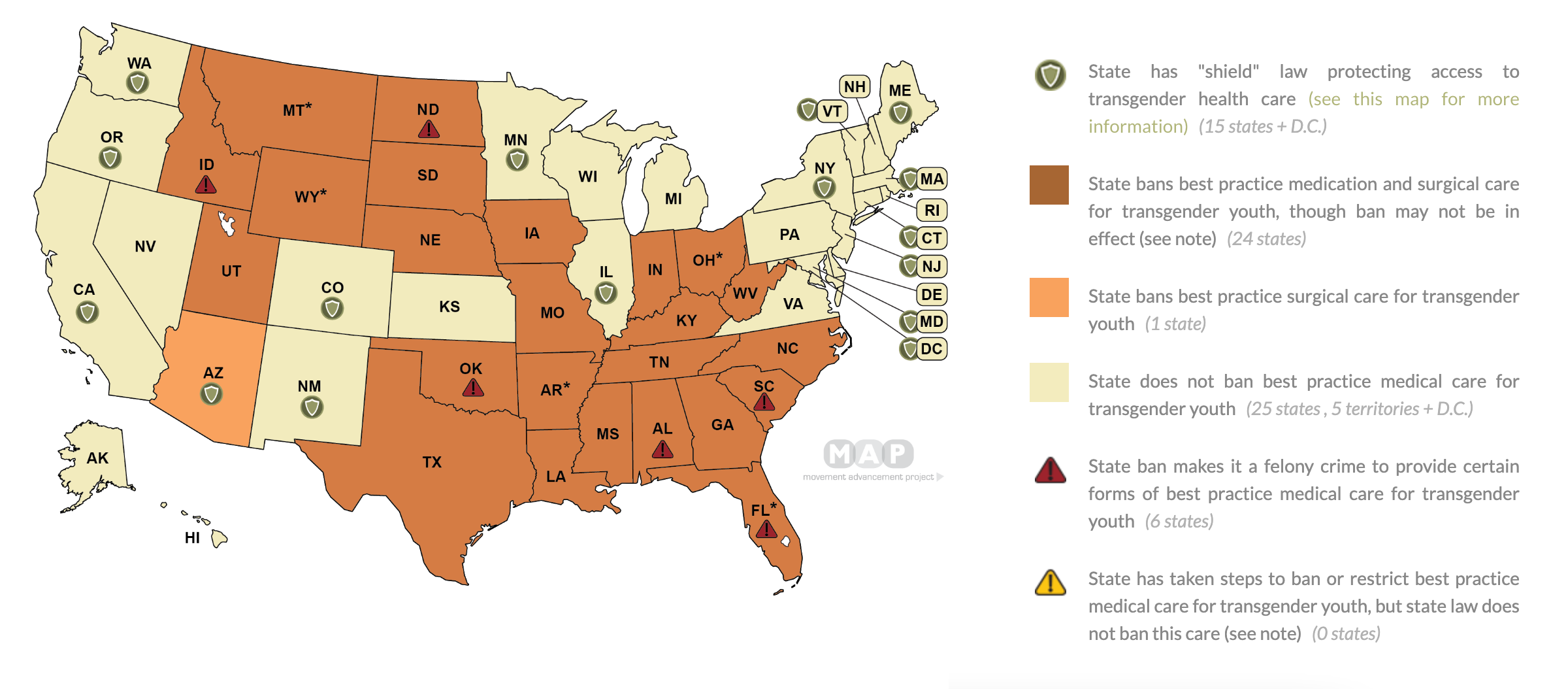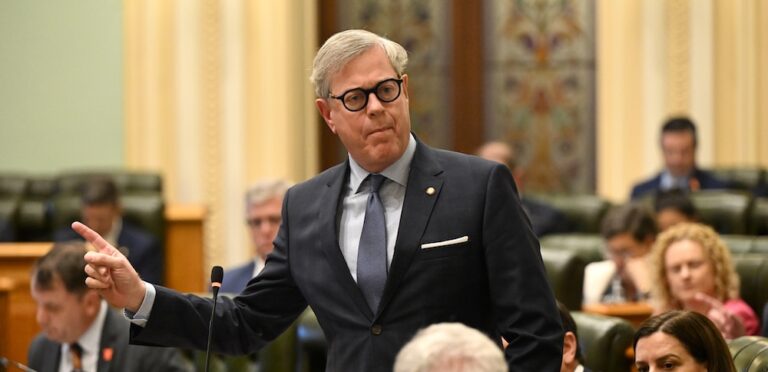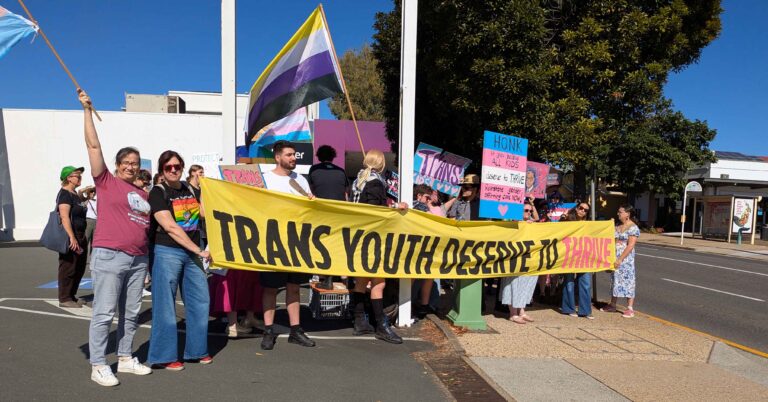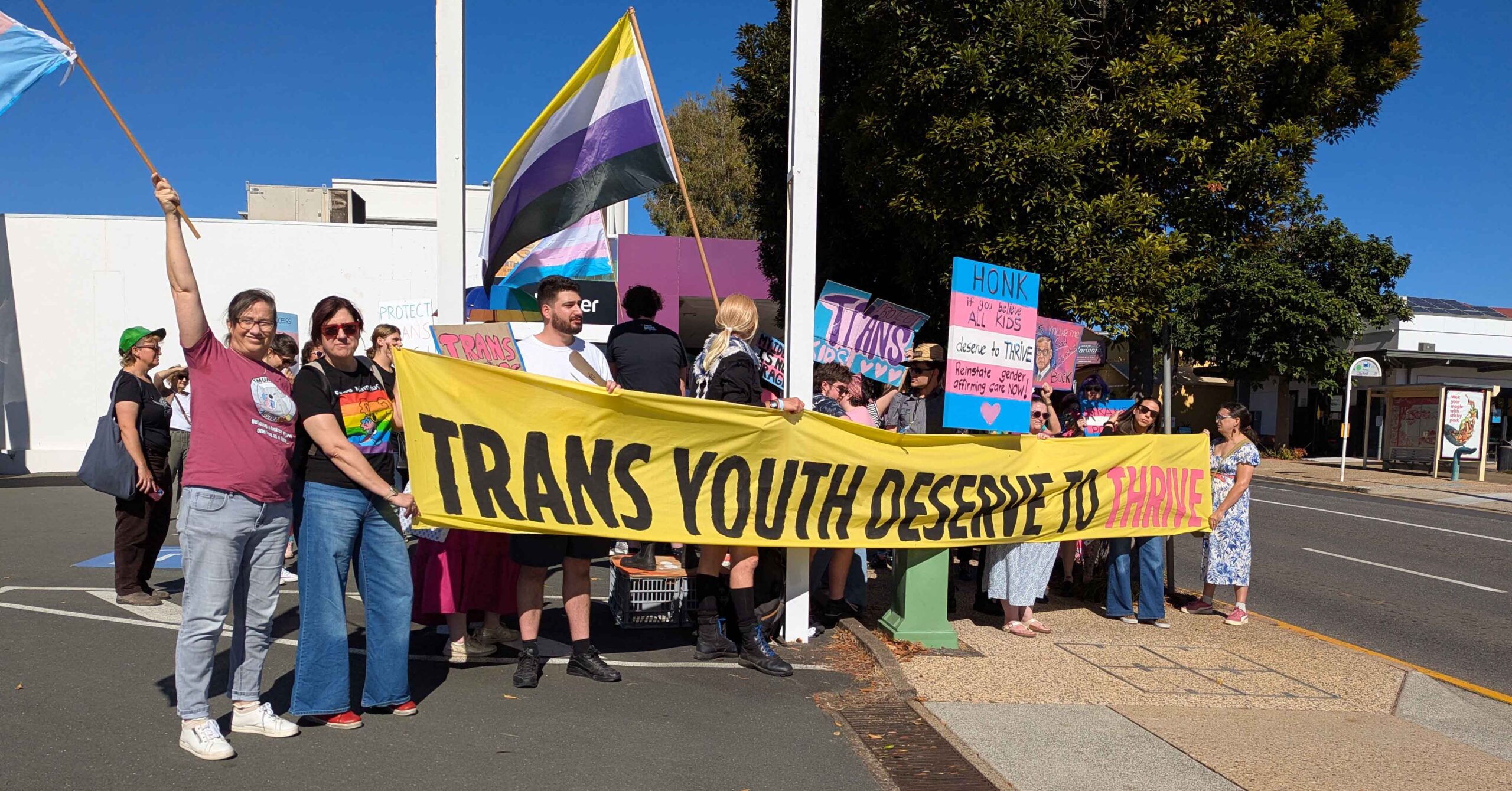
Supreme Court To Review America’s Widespread Bans on Youth Trans Healthcare

Nearly half the states in the Unites States of America have restricted or banned young trans people from receiving gender-affirming healthcare treatments – and now, the US Supreme Court has agreed to hear an appeal and review the legislation.
The Supreme Court will hear an appeal from a major case from Tennessee.
Three trans teens, their parents and their doctor will argue that Tennessee’s 2023 legislation banning their healthcare ‘violates the US constitutional guarantee of equal protection under the law by discriminating on the basis of sex’.
The case alleges that these state laws stop young people from accessing healthcare that they medically need.
The parents involved in the case also state that the ban strips them of parental right and ability to access best practice and necessary healthcare for their children.
“It’s crucial to recognise that for trans youth and their families, this isn’t about politics — it’s about the fundamental freedom to access vital, life-saving healthcare,” said Lucas Cameron-Vaughn, staff attorney at the ACLU of Tennessee.
Nine Supreme Court justices will have an opportunity to weigh in on the issue. It’s expected they will hear The court is expected to hear oral arguments during its next term, which starts in October.
Biden administration backs the trans teenagers
President Joe Biden and his administration have urged the court to decide if American state legislation can ban or restrict healthcare – in particular, the use of puberty blockers – for transgender people under the age of 18.
More than twenty states in America have implemented such laws.
Major medical groups from all around the world say that puberty blockers and other non-invasive treatments can help to lower rates of depression and suicide in young trans people.
Solicitor General Elizabeth B. Prelogar told the Supreme Court that conflicting legislations about gender-affirming care is “imposing grave consequences on families across the Nation who are being forced to make weighty decisions about whether to abandon their homes, jobs, schools, and communities in the hopes of preserving access to necessary medical care for their children without knowing whether the bans in their State and neighbouring States will be upheld or enjoined.”
She also said in a brief filed last year that the Tennessee law (and similar laws in other states) “inflict profound harm on transgender adolescents and their families” by denying “appropriate and necessary” treatments.
Defence says state found trans healthcare to be “unproven and risky”
The lawyers who are tasked with defending the ban has told the Supreme Court that treatments given to young trans people are “unproven and excessively risky”.
Tennessee Attorney General Jonathan Skrmetti says that the US Constitution does not give parents the right to demand “medical interventions for children that a state has found to be unproven and excessively risky.”
Major medical groups from all around the world say that puberty blockers and other non-invasive treatments are safe, effective and necessary medical treatments, and can help to lower rates of depression and suicide in young trans people.
“Decades of data support the use and safety of puberty-pausing medications, which give transgender adolescents and their families time to weigh important medical decisions,” says the Scientific American.
Skrmetti vowed to continue to defend the law, which he said is aimed at “protecting kids from irreversible gender treatments.”
A recent study also found that gender-affirming healthcare treatments for adults, including surgery, have the lowest rates of regret of any kind of surgery. Less than 1% of people regret having gender affirming surgeries, compared to up to 45% who regret breast reconstruction or 19.5% who regret weight loss surgery.
Supreme Court hearing could opening doors for LGBT discrimination cases
This is the first time the Supreme Court has agreed to hear a case regarding the widespread bans on trans healthcare, which have triggered major legal disputes and court cases all throughout the US.
With this being the first time the Supreme Court have agreed to hear oral arguments on this issue, this reportedly has the potential open the door for more concrete legal arguments that the bans on trans healthcare are unconstitutional, or discriminatory against LGBTQI+ people.
More than 100,000 young people banned from necessary healthcare
The Washington Post reports that “100,000 transgender adolescents live in one of about two dozen states that have banned gender-affirming medical care”.

This interactive map from LGBTmap.org shows the extent of state legislation banning best practice healthcare for young transgender people.








